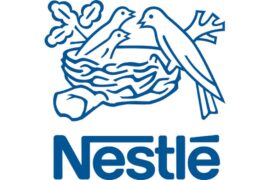Kraft Heinz has reported significant gains from cost savings initiatives and benefits from the redemption of preferred stock in the prior year, in putting a positive spin on a 1.7% dip in sales of $6.7 billion and a 0.9% organic net sales decrease during the second quarter of 2017. Diluted earnings per share (EPS) during Q2 increased to $0.94, while adjusted EPS rose to $0.98, up from $0.85 the prior year.
“As expected, our second quarter results were sequentially better than our first quarter, and we expect this momentum to continue into the second half of the year,” said CEO Bernardo Hees. “Our plan from the start has been to drive strong cost savings to fuel investments in people, capabilities and brands that can lead to sustainable, profitable growth. That’s what we see happening now, and expect to continue going forward.”
 The Chicago, Illinois-headquartered multinational company posted solid gains in a number of its largest categories, including strong growth in the frozen food sector after years of decline. Driving this development was the introduction Devour and SmartMade entrees, as well as a strong performance posted by frozen snacks, according to George Zoghbi, chief operating officer of commercial business operations in the United States.
The Chicago, Illinois-headquartered multinational company posted solid gains in a number of its largest categories, including strong growth in the frozen food sector after years of decline. Driving this development was the introduction Devour and SmartMade entrees, as well as a strong performance posted by frozen snacks, according to George Zoghbi, chief operating officer of commercial business operations in the United States.
The SmartMade brand extension of the Smart Ones line boasts 13 offerings that include Rosemary Grilled Beef & Vegetables, Spicy Peanut Chicken & Broccoli, and Turkey Sausage & Roasted Vegetables.
 The Devour ready meals assortment features a dozen products that include Pesto Ravioli with Italian Sausage, Pulled Chicken Burrito Bowl, Angus Beef with Cornbread, and Deep Dish Three Meat Pizza.
The Devour ready meals assortment features a dozen products that include Pesto Ravioli with Italian Sausage, Pulled Chicken Burrito Bowl, Angus Beef with Cornbread, and Deep Dish Three Meat Pizza.
Net sales of all product lines in the United States – which range from Heinz Tomato Ketchup and Grey Poupon Dijon Mustard to Ore-Ida frozen potato products, Jell-O, Maxwell House Coffee, Kraft Macaroni & Cheese and many more items – totaled $4.6 billion, down 1.2% versus the year-ago period. Pricing decreased 0.4 percentage points, reflecting timing of trade promotion recognition in the prior year that more than offset price increases in cheese. Volume/mix decreased 0.8 percentage points as the benefit from a shift in Easter-related sales as well as gains in frozen, macaroni and cheese, and condiments and sauces were more than offset by select distribution losses in cheese and meats as well as lower shipments to foodservice customers.
Net sales in Canada amounted to $597 million, down 6.4% versus the year-ago period, including a negative 3.3 percentage point impact from currency. Organic net sales decreased 3.1% versus the year-ago period. Pricing decreased 3.7 percentage points primarily due to an increased level of promotional activity versus the prior year.
Europe net sales were $595 million, down 4.9% versus the year-ago period, including a negative 4.1 percentage point impact from currency. Organic net sales were 0.8% lower than the year-ago period. Pricing decreased 1.6 percentage points due to changes in promotional spending levels versus the prior year, primarily in the UK and Italy. Volume/mix increased 0.8 percentage points driven by strong consumption gains in condiments and sauces and gains in foodservice that were partially offset by shipment timing versus the prior year period as well as ongoing consumption weakness in Italy.
Net sales in the rest of the world net sales hit $851 million, increasing 1.6% versus the year-ago period, despite an unfavorable currency impact of 1.4 percentage points. Organic net sales rose 3% versus the year-ago period. Pricing increased 3.7 percentage points primarily driven by actions to offset higher input costs in local currency, particularly in Latin America. Volume/mix was 0.7 percentage points lower as strong growth in condiments and sauces was more than offset by a combination of significantly lower shipments in India, unfavorable holiday-related shipment phasing in Indonesia, as well as the impact of distributor network realignment in several markets.




